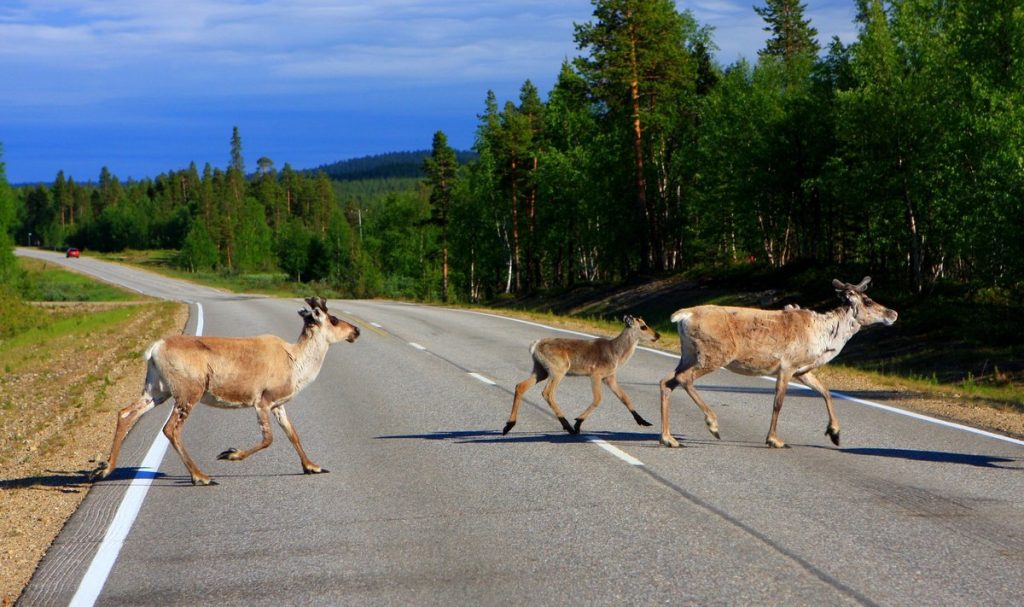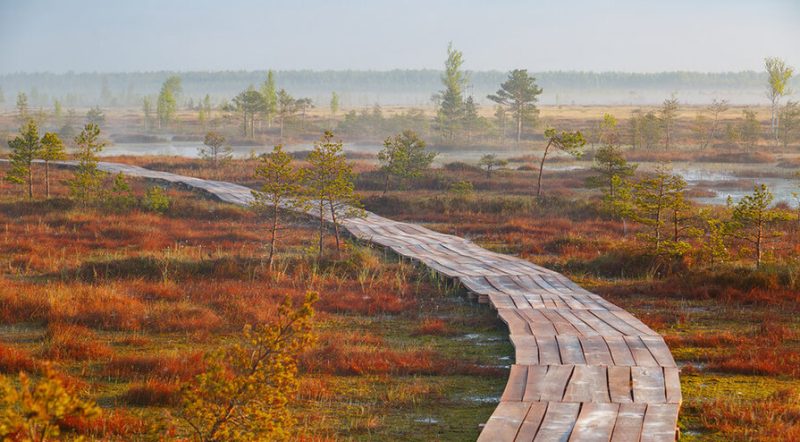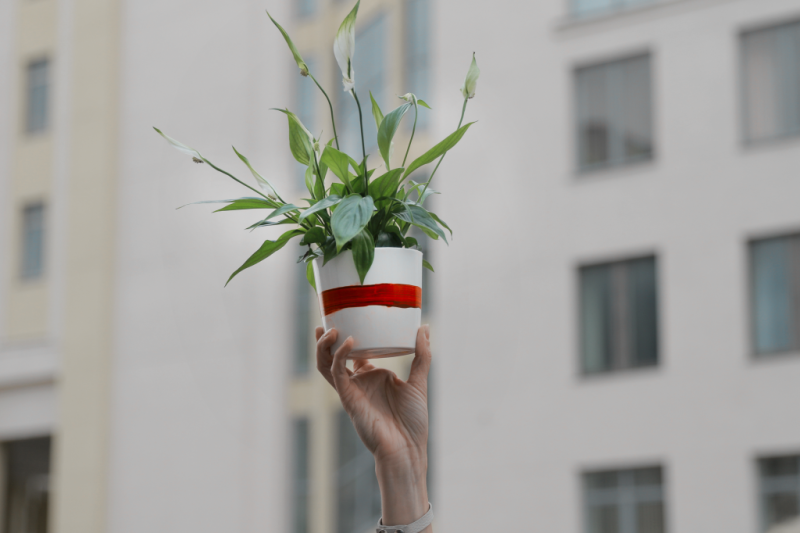Problems faced by activists in different countries are often similar, and they often get inspired by similar things. Here are the personal stories told by young activists from Romania, Poland, Spain, telling about why they care about environmental issues, what are the problems in the field of ecology in their country, and where they find inspiration.
Вопросы защиты природы интересовали меня ещё со времени поступления в университет. Сначала я собирался стать врачом, но после того как сам попал в больницу, понял, что для медицинской профессии у меня не тот склад характера. Я продолжал искать себя, чувствовал потребность делать что-то важное, полезное, делать что-то, что соответствовало бы моим принципам. Поэтому я поступил в Университет Лесного Хозяйства – конкурс тогда был четыре человека на место. Я работаю в организации, которая занимается продвижением устойчивого развития в нашем регионе (Fundacja EkoRozwoju). Мы не против развития, но мы концентрируемся на партнёрстве и взаимодействии с местными органами управления. Мы считаем, что наша задача – помочь им лучше делать свою работу. Мы занимаемся вопросами, связанными с переработкой отходов (и вообще обращением с отходами) в городах, сохранением редких видов животных и птиц, но самый большой наш проект – это “Природные Дороги”.Кодрин, Румыния
 Лес для меня – это всё, начиная от моего имени (которое означает “лесной человек”), до тех вещей, которые невозможно потрогать, но которые ты всегда чувствуешь, которые всегда с тобой. Когда я узнавал о лесе больше, говорил о лесах с людьми, которые посвятили им свою работу — я понял, что это именно то, чем я хотел бы заниматься. Лес – это жизнь, ведь всё, что тебе нужно, ты можешь найти в лесу. Лес защищает и обеспечивает всем необходимым. Наш долг – не только брать, но и делать что-то для леса в свою очередь.Теоретически, вопросы лесопользования в Румынии достаточно хорошо прописаны и разработаны, но на практике из-за экономической и социальной ситуации леса находятся в процессе интенсивного использования и даже уничтожения ради быстрых денег. Лес стал источником дохода, политическим инструментом, доводом в предвыборных кампаниях. Многие люди стараются изменить эту ситуацию. При этом важно бороться за справедливые законы, не на бумаге, а в жизни.
Лес для меня – это всё, начиная от моего имени (которое означает “лесной человек”), до тех вещей, которые невозможно потрогать, но которые ты всегда чувствуешь, которые всегда с тобой. Когда я узнавал о лесе больше, говорил о лесах с людьми, которые посвятили им свою работу — я понял, что это именно то, чем я хотел бы заниматься. Лес – это жизнь, ведь всё, что тебе нужно, ты можешь найти в лесу. Лес защищает и обеспечивает всем необходимым. Наш долг – не только брать, но и делать что-то для леса в свою очередь.Теоретически, вопросы лесопользования в Румынии достаточно хорошо прописаны и разработаны, но на практике из-за экономической и социальной ситуации леса находятся в процессе интенсивного использования и даже уничтожения ради быстрых денег. Лес стал источником дохода, политическим инструментом, доводом в предвыборных кампаниях. Многие люди стараются изменить эту ситуацию. При этом важно бороться за справедливые законы, не на бумаге, а в жизни.Камил, Польша
 Этот проект был связан с деревьями, растущими вдоль дорог — иногда они были посажены пять или шесть столетий тому назад, и мы убеждены в том, что их нельзя срубать. В то же время местные власти часто поступают именно так, аргументируя это тем, что старые деревья могут находиться в аварийном состоянии и могут быть небезопасны. Но это не так! И мы привлекаем учёных и экспертов, которые могут привести аргументы, рассказать, как происходят естественные процессы в жизненном цикле деревьев. В итоге получился один из самых успешных наших проектов – вместе с 35 представителями дорожных властей мы посадили 30 000 деревьев вдоль польских дорог. Если высадить их вдоль одной дороги, получилось бы расстояние от Варшавы до Кракова. Мы показали, что для деревьев вдоль дорог есть место, если есть знания и умения у людей, которые занимаются этим вопросом.Я очень люблю деревья и всегда хотел работать в таких проектах. Но мне также хочется работать и с людьми, привлекать их к природозащитной деятельности, проводить образовательные мероприятия.
Этот проект был связан с деревьями, растущими вдоль дорог — иногда они были посажены пять или шесть столетий тому назад, и мы убеждены в том, что их нельзя срубать. В то же время местные власти часто поступают именно так, аргументируя это тем, что старые деревья могут находиться в аварийном состоянии и могут быть небезопасны. Но это не так! И мы привлекаем учёных и экспертов, которые могут привести аргументы, рассказать, как происходят естественные процессы в жизненном цикле деревьев. В итоге получился один из самых успешных наших проектов – вместе с 35 представителями дорожных властей мы посадили 30 000 деревьев вдоль польских дорог. Если высадить их вдоль одной дороги, получилось бы расстояние от Варшавы до Кракова. Мы показали, что для деревьев вдоль дорог есть место, если есть знания и умения у людей, которые занимаются этим вопросом.Я очень люблю деревья и всегда хотел работать в таких проектах. Но мне также хочется работать и с людьми, привлекать их к природозащитной деятельности, проводить образовательные мероприятия.Смара, Румыния

Диего, Италия
 Самое важное из того, что происходит сейчас и сильнее всего влияет на окружающую среду – это использование ископаемых видов топлива. Это запускает в работу всю индустрию по производству пластика, а пластик сейчас везде.
Самое важное из того, что происходит сейчас и сильнее всего влияет на окружающую среду – это использование ископаемых видов топлива. Это запускает в работу всю индустрию по производству пластика, а пластик сейчас везде.
Codrin, Romania
I was interested in nature protection ever since I studied in the University. At first I wanted to become a doctor, but after I once got to the hospital, I realized that I don’t have the right character for medical profession. I continued to search for myself, but I felt the need to do something important, useful, to do something that would be consistent with my principles. So I entered the University of Forestry — competition was high then, four people for one place.

Forest is everything for me — starting from my name (which means «forest man»), to those things that can not be touched, but you always feel them, they are always with you. When I learned about the forest, talked a lot about forests with people who were dedicated to their work, I realized that this is exactly what I wanted to do. Forest is life, because everything that you need, you can find in the forest. Forest protects and provides everything you need. Our duty is not only to take but also to do something for the forest.
In theory forest management in Romania is well organized and developed, but in practice because of the economic and social situation we are in the process of intensive forest use and even destruction for fast money. Forest became a source of income, political tool, the reason for the political campaign. Many people are trying to change this situation. It is important to fight for just laws, not on paper, but in life.
Kamil, Poland
I work in an organization that promotes sustainable development in our region (Fundacja EkoRozwoju). We are not against development, but we are focusing on partnership and cooperation with local governments. We believe that our task is to help them do a better job. We deal with issues related to waste management in urban areas, conservation of rare species of animals and birds, but our biggest project is called «Roads for Nature».

This project is about trees growing along the roads — sometimes they were planted five or six centuries ago, and we are convinced that they can not be cut down. At the same time, local authorities often do just that, arguing that the old trees may be in poor condition and can be unsafe. But it is not so! And we invite scientists and experts who can give arguments, tell us how natural processes happen in the life cycle of trees. The result had been one of our most successful projects — together with 35 representatives of road authorities we planted 30,000 trees along the Polish roads. If you plant them along the same road, you would have the distance from Warsaw to Krakow. We have shown that trees along the roads have a place if there is knowledge and skills in people who are engaged in this issue.
I love trees and always wanted to work in such projects. But I also want to work with people and involve them in nature protection activities.
Smara, Romania
In my opinion, the biggest problem faced by activists now in Romania is fracking. Effect on the environment can be quite destructive — it will affect not only Romania, but also in neighboring countries. This problem is the most important for Red Mountain, Rosia Montana. There’s a Canadian company which wants to mine silver and gold there. This will result in cutting down most of the trees, there are also risks for a nearby village which has been included in the UNESCO World Heritage List, as there was a settlement of preRoman times. There are more than a hundred kilometers of Roman galleries. In addition, in fracking there will be used about 30 tons of dynamite every day, and the waste is planned to be buried nearby, which will result in the largest cyanide swamp in Europe .

The first thing that we believe should be done in such a situation is to inform people. They need to have a complete picture of all the information, not just the one that is listed in the description of the project and may not be entirely true. Next we must do everything possible within the law — an independent examination of documents, public hearings and suggesting alternatives.
Diego, Italy

The most important of what is happening now and has the hardest impact on the environment is the use of fossil fuels. This starts the entire industry for the production of plastic, and plastic is now everywhere.
Look at any of your purchase, there sure will be a package of plastic. Recycling plastic is very difficult, because there are many types of it. Moreover, it certainly leads to large emissions of carbon dioxide and affects climate.
It’s important to find time to think about it. Most people, if you talk to them, they want to change the current situation. But they do not connect their daily activities with the global issues — they simply do not have time to think about it, they are always busy, they do not have peace and harmony in mind. Awareness of the problem and building the connections between things is the next step which will lead to greater awareness in daily actions. However, we do not have time for this, we are working at two jobs, and for the happiness and satisfaction we buy more and more things. This is a never-ending story.
I think that the call «We need to save the climate» is not working. We do not need to save it — it will become different, new species will adapt, others will die. Call should be: «We need to save ourselves» — can we adapt to changing conditions?
Sailing for sustainability is one of the inspiring projects that happened in the summer of 2012.
We knew that our governments will discuss global issues at Rio +20. We also tried to discuss these issues, but at the local level — on a ship, sailing on the Baltic Sea. We discussed how we live now, and tried to live differently — we had even a manifesto. Of course, it is not so easy with 120 people on the ship, in a relatively confined space. But because of it our conclusions were very illustrative: for example, limited resources (as well as in the world); different interests and their collision (as in any society).
In addition, we visited small towns on the Baltic Sea, held lectures and performances, drawing attention to the pressing problems of sustainable development. We did workshops, organized discussions about vegetarianism, learned to sail, took common decisions. The project lasted 4 weeks, but we were preparing for about half a year.
After this project we had many new ideas — for example, Cycling Alternatives. This project is made by people who make things really alternative. This is a trans-European bikeride, mobile workshop on permaculture and self-organization.
Self-organizationis difficult, but it really works. It is important to do practical things, to exercise it deeds and not just words.
Maria Gulina, greenbelarus.info
Photos: Facebook.com, sailingforsustainability.org, rosiamontana.org




